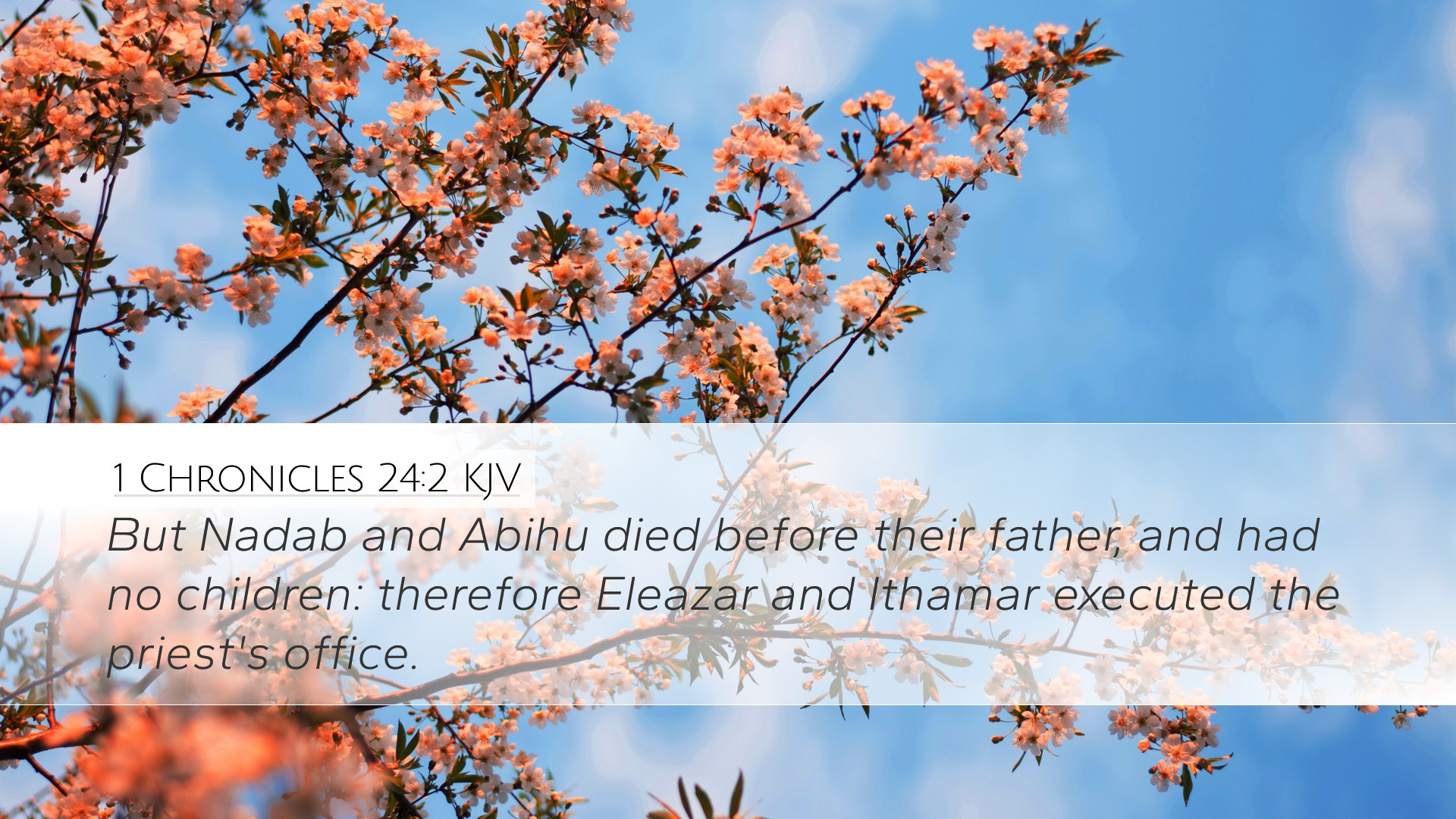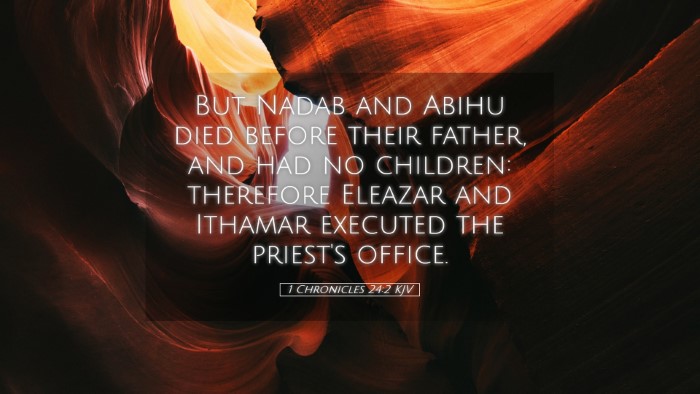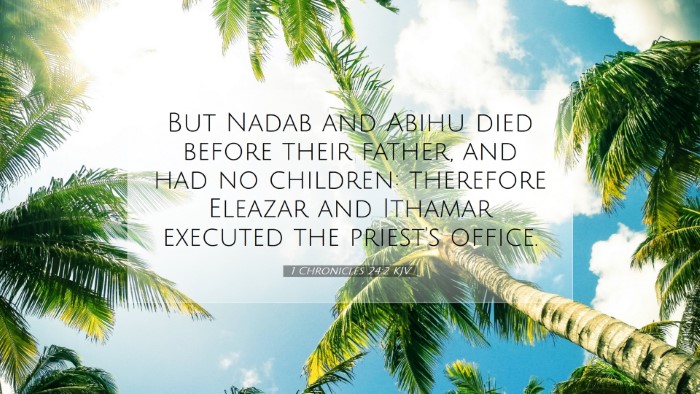Commentary on 1 Chronicles 24:2
Verse (1 Chronicles 24:2): "And Nadab and Abihu died before the Lord, when they offered strange fire before the Lord, in the wilderness of Sinai; and they had no children: and Eleazar and Ithamar ministered in the priest's office in the sight of Aaron their father."
Introduction
This verse offers a glimpse into the early leadership and priestly structure of Israel post-Exodus, centering on the dedicated service rendered to God by the sons of Aaron, particularly in light of the tragic deaths of Nadab and Abihu. The commentary herein distills insights from notable public domain sources to enrich our understanding of its theological implications and historical context.
Contextual Background
In the historical narrative of 1 Chronicles, the author seeks to recount the genealogies of the priests and Levites. This specific passage highlights both the significance of priestly lineage and the serious consequences of deviating from divine command. The fate of Nadab and Abihu serves as a solemn reminder of God's holiness and the reverence due in worship.
Matthew Henry's Insights
Authority of the Priestly Order: Matthew Henry emphasizes that Nadab and Abihu, as sons of Aaron, were given a high calling in Israel's worship practices. Nevertheless, they acted presumptively by offering "strange fire," indicating unauthorized offerings that deviated from God's commands.
Consequences of Disobedience: This segment of Scripture serves as a stark warning: the severe judgment rendered upon Nadab and Abihu exemplifies that God’s presence requires holiness and obedience. Their deaths illustrate the serious nature of handling sacred duties without reverence.
Albert Barnes’ Analysis
Significance of Fire in Worship: According to Barnes, the notion of "strange fire" evokes contemplations about the nature of worship that is unacceptable to God. He elaborates that fire was considered sacred, and the method of approaching God in worship had specific, divinely ordained protocols that must not be altered.
Lessons on Leadership: Barnes takes this event to reflect on the broader implications for spiritual leaders. He asserts that leaders in the ministry must not only know God’s laws but also adhere strictly to them, lest they face similar fates due to negligence or arrogance in their responsibilities.
Adam Clarke's Commentary
Exploration of ‘Strange Fire’: Clarke defines "strange fire," aligning it with any form of unauthorized worship or practice that does not align with God’s established order. He posits that the act of Nadab and Abihu could be rooted in a misguided zeal rather than a blatant rebellion, although consequences were unavoidable.
The Role of Eleazar and Ithamar: In the aftermath of the tragedy, Clarke notes that Eleazar and Ithamar were entrusted with service. This change represents God's insistence on maintaining a faithful priesthood and ensures that divinely appointed roles remain fulfilled amidst human failure.
Theological Implications
This brief historical account conveys profound theological truths about the nature of God, worship, and leadership. The passage acts as a microcosm reflecting the larger themes of God's holiness and the call for adherence to divine commands.
Holiness of God
The underlying principle illustrated is the absolute holiness of God and the seriousness with which His commands must be observed. Nadab and Abihu’s deaths underscore how critical it is to approach God with reverence, bringing attention to the care required in worship practices.
Role and Responsibility of Leaders
Furthermore, this text challenges leaders within the faith community to embrace accountability and informed devotion. The ministerial role is treated as a high calling, requiring adherence to the ethical and moral underpinnings of God’s laws.
Conclusion
1 Chronicles 24:2 serves as both a cautionary tale and a call to faithful service in ministry. It underscores the importance of precise adherence to God’s instructions regarding worship, the gravity of spiritual leadership, and the ever-present demand for holiness in the life of a believer. As pastors, students, and scholars reflect on this verse, may it inspire an earnest pursuit of righteousness and proper worship in all aspects of divine service.


